Richmond Justice
STORIES + PORTRAITS

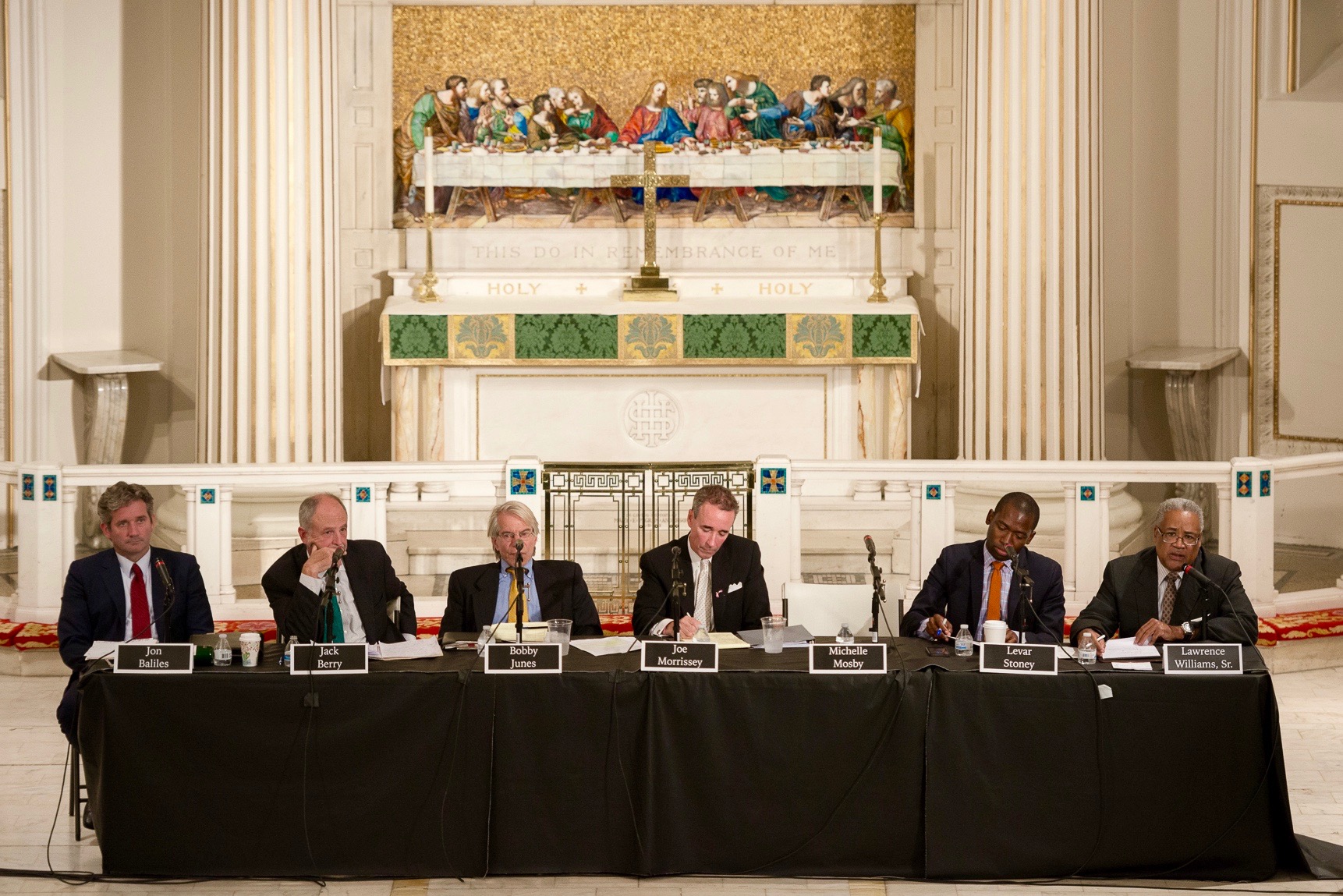
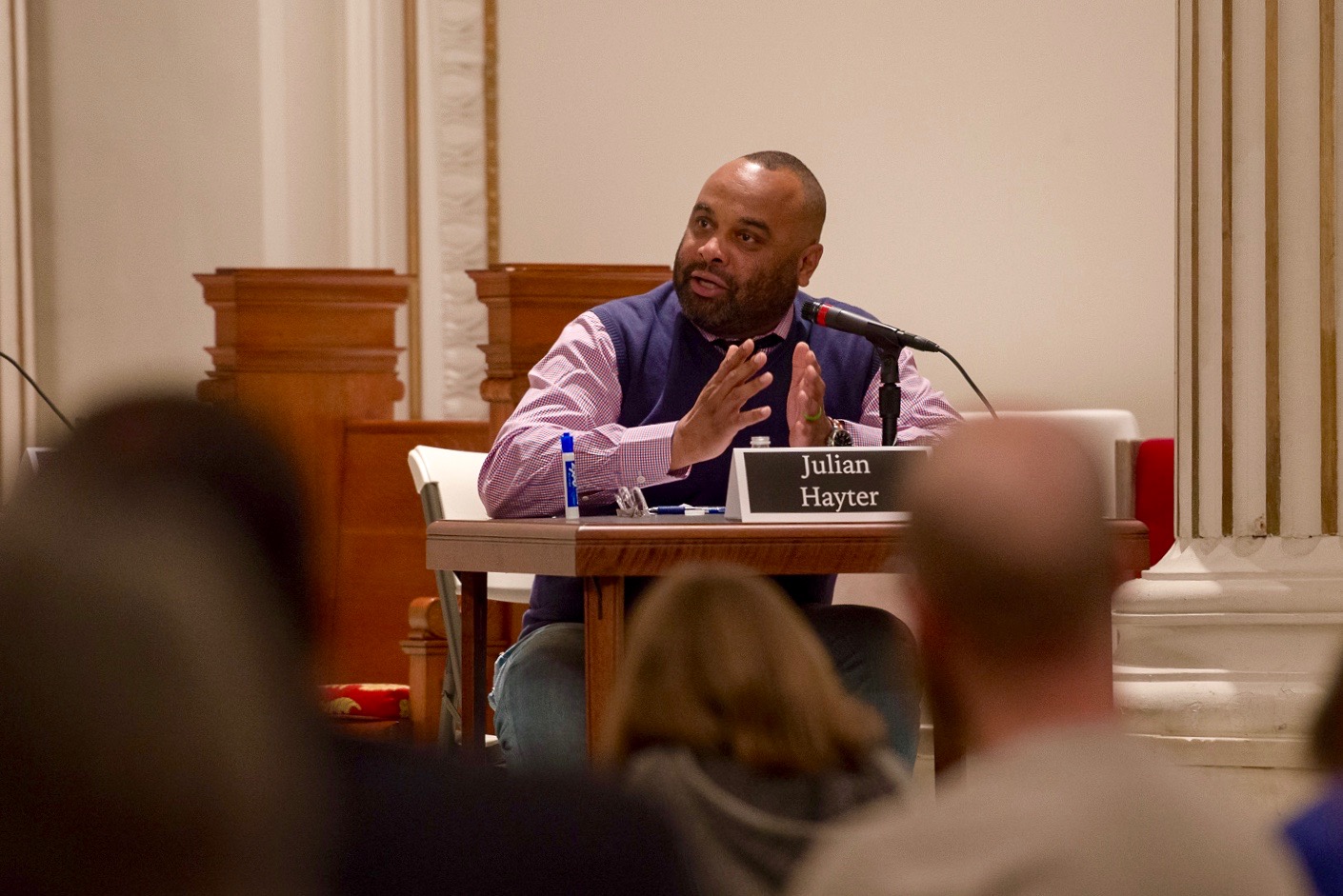
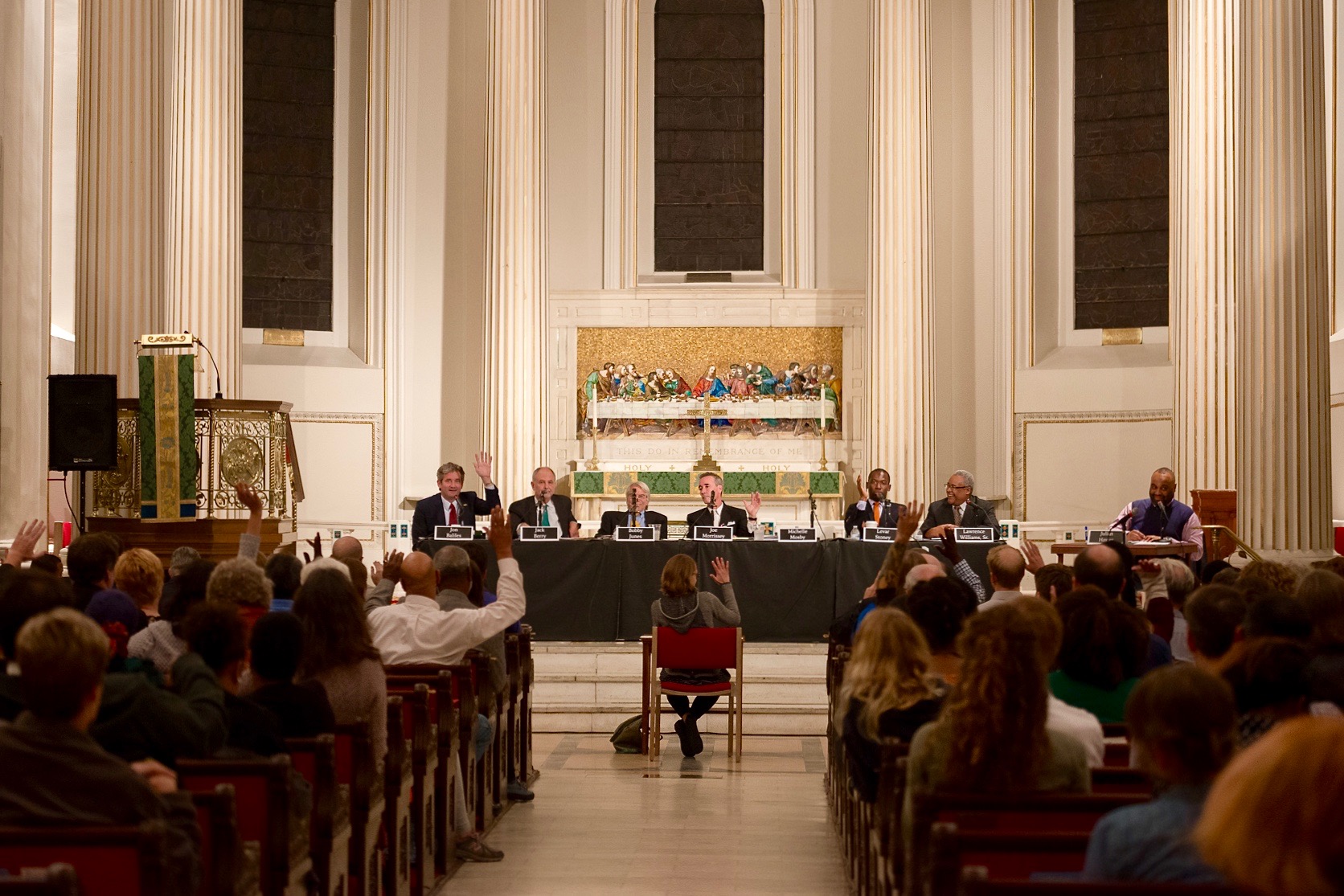
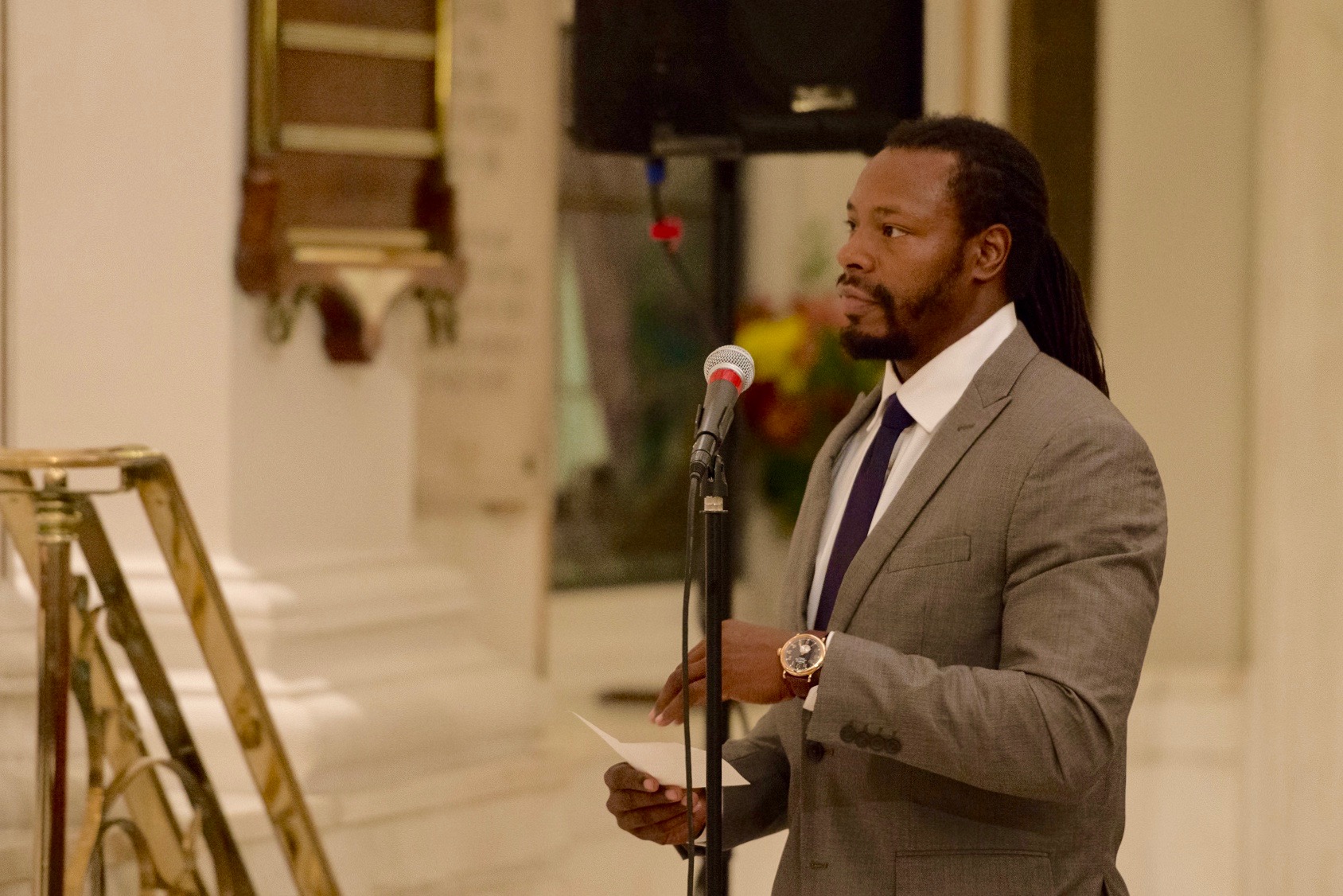
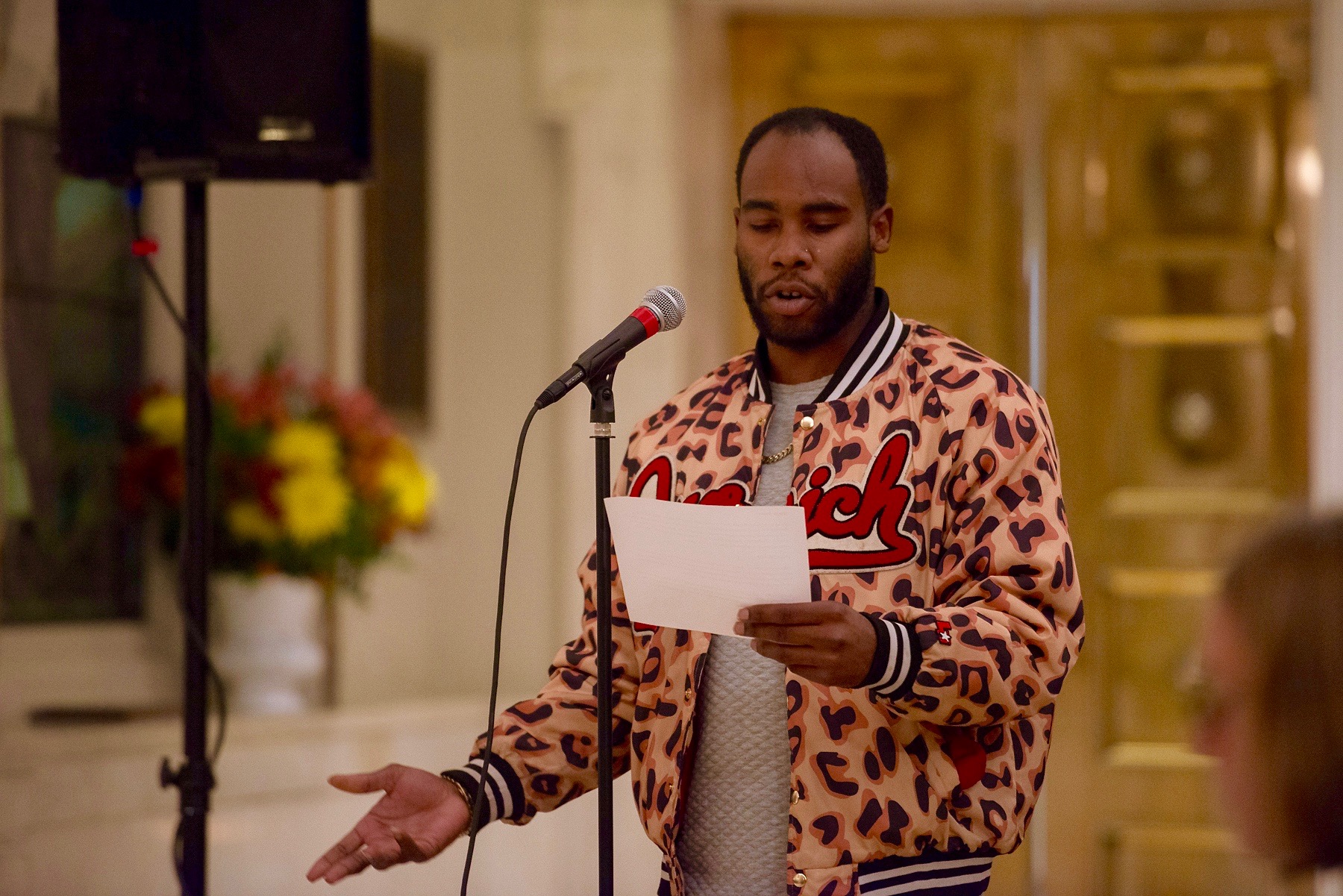
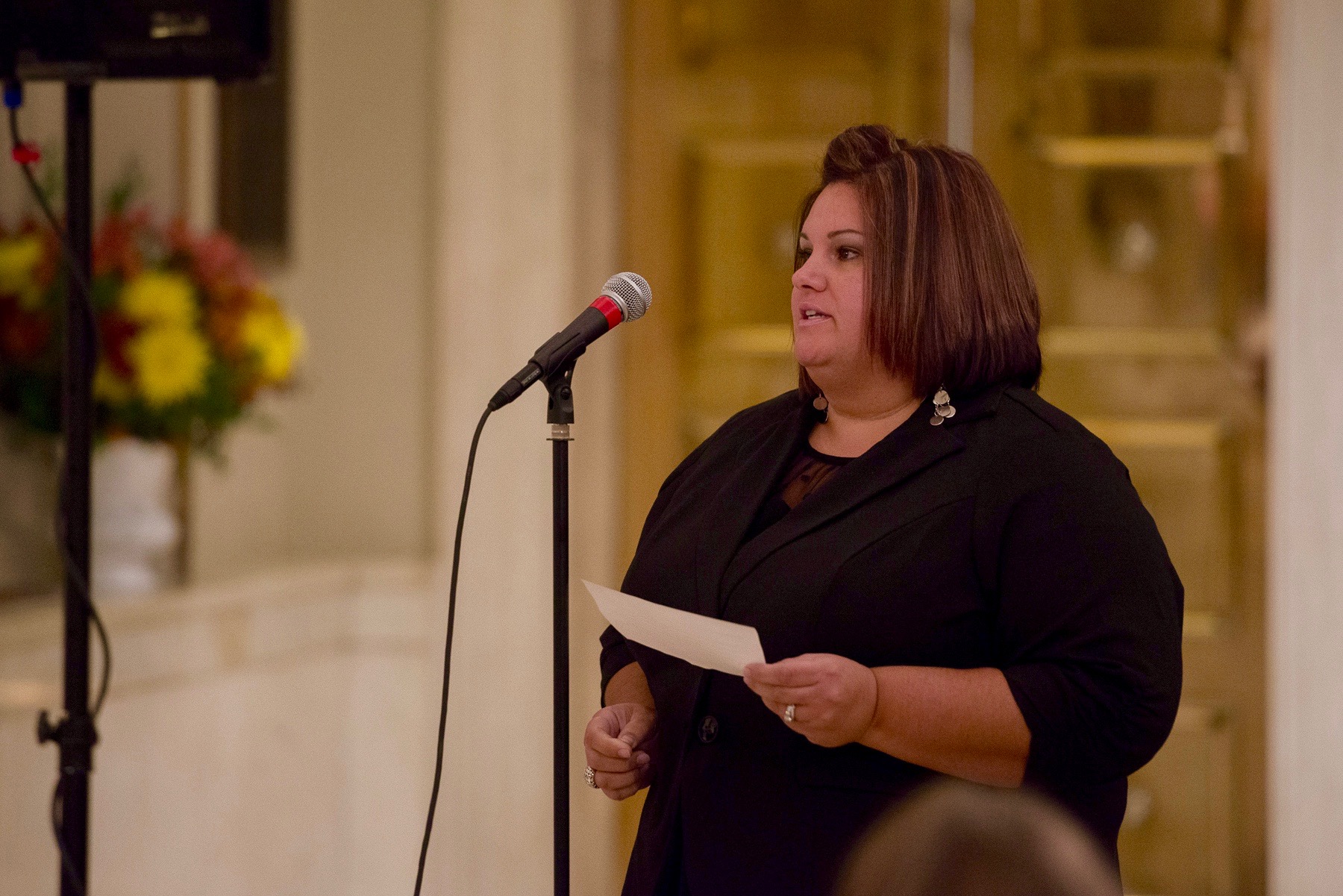
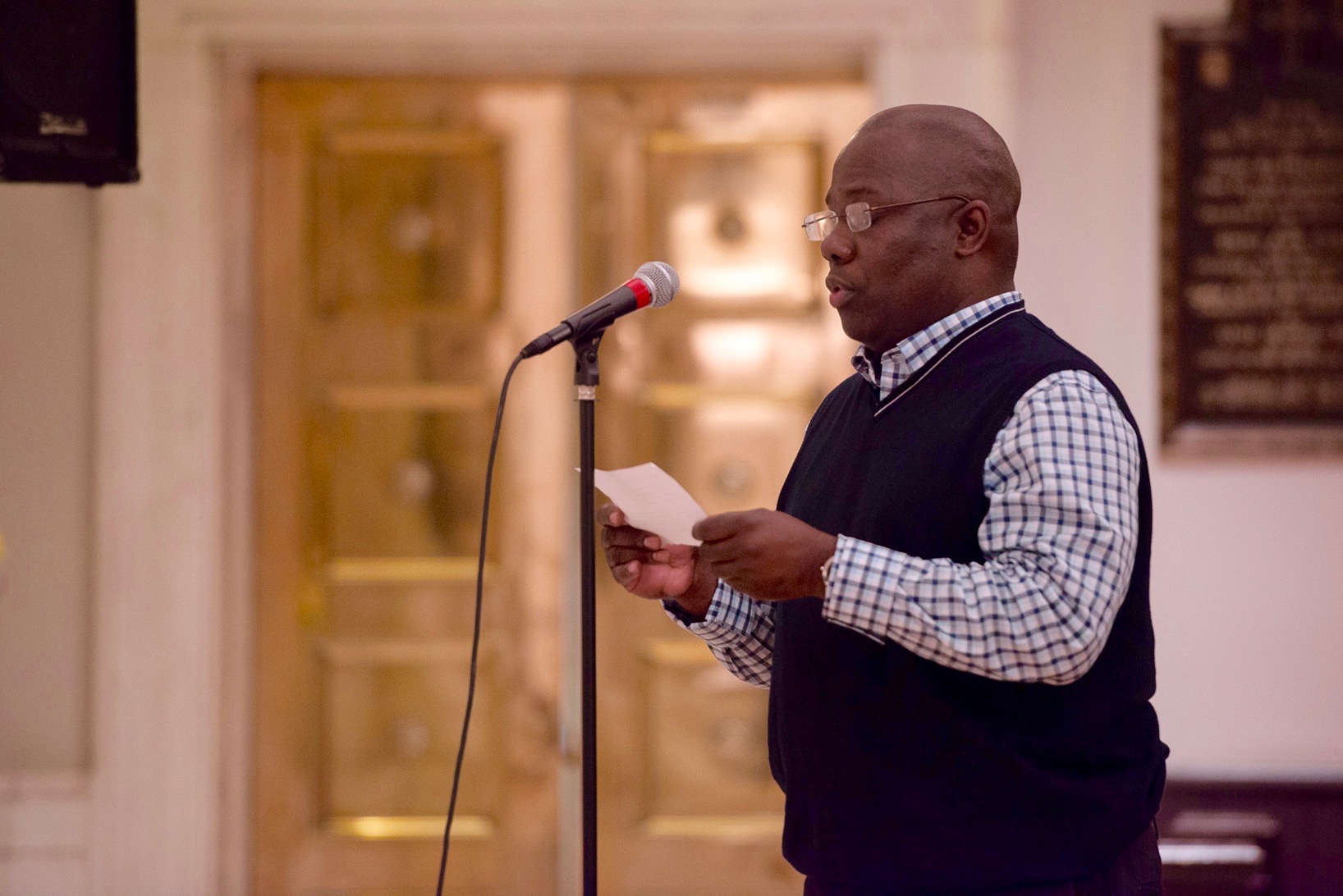
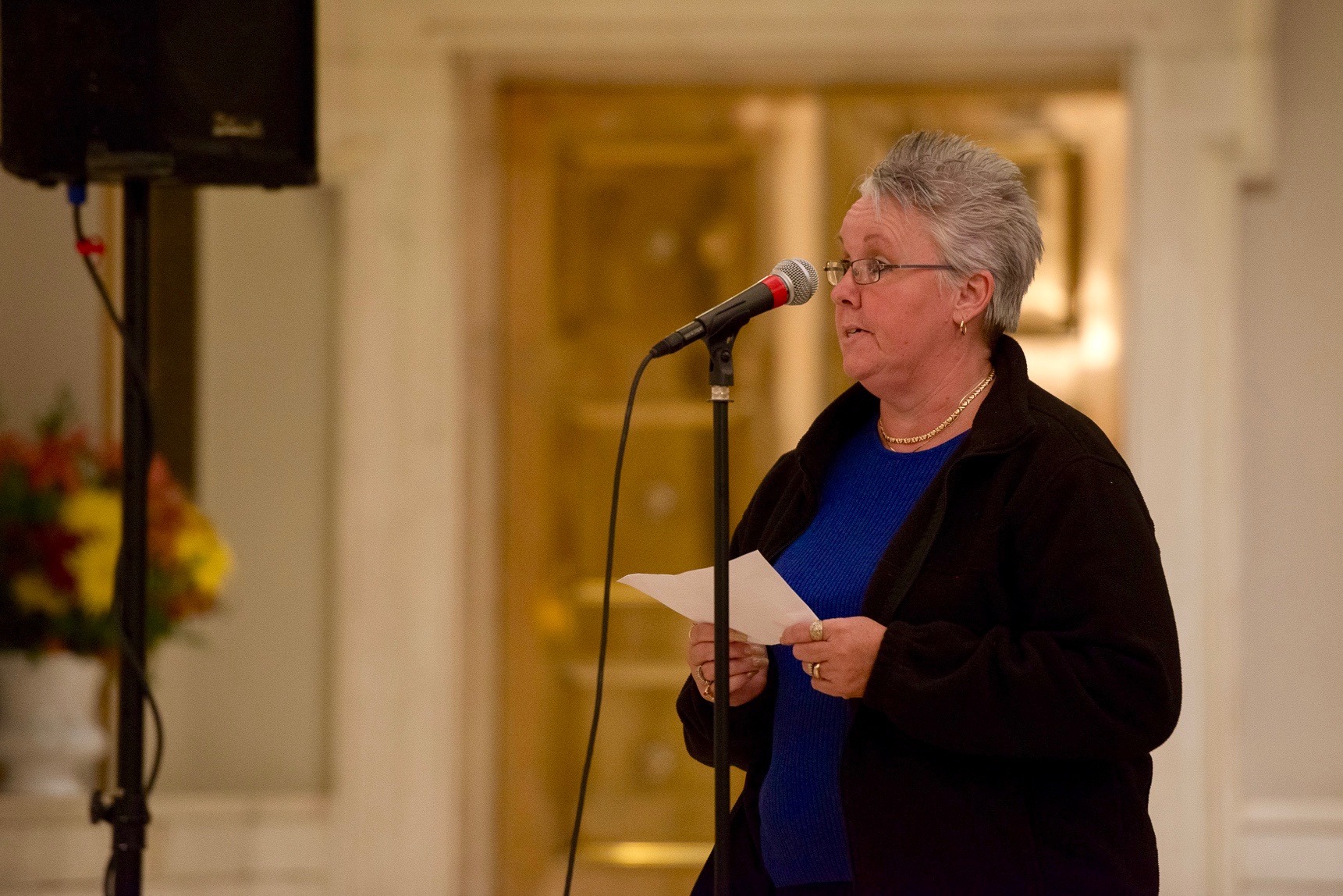

The Mayoral Debate
October 13, 2016
Richmond Justice convened candidates for mayor to discuss urgent issues in criminal justice three weeks before Election Day.
The candidates promised to tackle a wide range of challenges to justice in Richmond. In the notes below, we've highlighted their most notable commitments. Take a look—and please share.
Editors' note: Candidates varied in the degree of detail they offered in response to each question. We present here each candidate’s most specific proposals.
Photo by Matt Cowan for Richmond Justice
Jon Baliles
Represents the 1st District
on City Council
On the school-to-prison pipeline: “What we have seen at the local level since Chief Durham has taken over in early 2015—he instituted a program that does not consider kids who kick a trashcan or have an outburst criminals. That is exactly the policy we need to follow. I believe that the mayor and the City Council should do whatever it takes to allow Chief Durham and the school system to bolster that policy.”
On breaking the cycle of mental illness and incarceration: “The mayor should institute a program to provide transitional housing and beds for people who need help. We can advocate at the state level, but we need to look closer to home and work for solutions for the population that needs help people here.”
On breaking the cycle of homelessness and incarceration: “The city needs to bolster and help groups like Virginia Supportive Housing and the Better Housing Coalition. They just recently announced the conversion of that old Comfort Inn on Broad Street across from Channel 6 into mixed-use. It’s going to be some market-rate and some transitional housing—and that’s fantastic. That’s what the city needs to get behind. The city can do other things to convert vacant and blighted homes into housing. But for my part, I think the city needs to start by getting behind VSH and BHC.
On generating employment opportunities for formerly incarcerated individuals: “This is really a simple matter of the mayor prioritizing the budget. The mayor crafts the budget and then the mayor has to convince City Council that those priorities are worthwhile. The mayor can insert money from the nondepartmental budget for a nonprofit like the McShin Foundation to offer recovery services. The nondepartmental budget funds lots of nonprofits that help the city in various ways. We need to prioritize this type of programming in the budget. Lord knows we’ve got a lot of vacancies in public works, because roads aren’t being paved and grass isn’t getting cut, and we know that rather than hire a temporary firm to temp-out workers that they hire, we should hire and offer opportunities to people in this city who need it. It’s simply a matter of priorities. The next mayor needs to act and demonstrate that those things are more important than big, shiny projects.”
“It’s on the mayor and the City Council to create a robust business environment. We can’t pretend the problem doesn’t exist because the recidivism rate is very high and Richmond has perfected the art of sweeping things we don’t want to talk about under the rug. It’s time that we actually face these problems and talk about them in a way that’s constructive that puts people back to work, puts them back in society, and make sure that they’re contributing to the city because they all deserve the chance. It’s the time that the City Council and the mayor provide that opportunity.”On the Office of Community Wealth Building: “It is a priority. And it is something that the next mayor needs to put to the forefront because while we can invest money in education for kids who are in schools, we also need to provide opportunities to parents and adults that went through Richmond Public Schools and did not get the education that they deserved. There are plenty of jobs out there and there are plenty of opportunities out there to learn skills, to get jobs that can’t be outsourced to China. Workforce development is key.”
Photo by Matt Cowan for Richmond Justice
Jack Berry
Former Executive Director
of Venture Richmond
On supporting struggling communities where rates of incarceration among youth are exceptionally high: “There’s a network in Richmond that’s working on this issue. It’s called the Greater Richmond Trauma Informed Community Network—about 60 organizations and agencies that are banding together to work in helping these parents. We need make sure to have a mayor who engages that system, learns about that system, and makes sure that his department heads and leaders in City Hall are fully engaged in the community’s nonprofit system of care—not just sitting on the sidelines.”
On breaking the cycle of mental illness and incarceration: “What the research tells us, and what local nonprofits are trying to do in Richmond is making housing first. Rapid housing. You’ve got to get them into housing, get them into some sort of stable situation, and then deal with the mental health problem, and then deal with the substance abuse problem. We’ve got to get these folks into housing first. And part of the problem that we’re experiencing here is that we’ve got a community service board at the behavioral health authority that doesn’t have the capacity to do its job, and therefore the criminal justice system is having to step-in. We should eliminate waiting lines and make sure that mental health clients get served now and not a month later, when it’s too late.”
On opioid abuse: “We have to admit the extent of the problem and we have to rally our community to address it. There are programs like those at the McShin Foundation that are doing an incredibly good job. It’s up to City government to partner with programs like that if our own behavioral health authority does not have the capacity to do it.”
On generating employment opportunities for formerly incarcerated individuals: “We don’t think twice around here about incentivizing a manufacturing company who creates jobs; we give them tax breaks and tax credits for the jobs they create. So why shouldn’t we think about doing that for the small business, particularly when the small business is doing that in a way that helps a returning citizen, a former inmate who has so many challenges getting started?”
“We should be known as the city that took the scarlet letter off the criminal. A single crime should not define a person fully for the rest of their life. Sometimes we’re talking about crimes that are low-level drug offenses or a crime of desperation or disruptive behavior in school. We’ve got to make sure that we don’t criminalize our neighbors.”On the Office of Community Wealth Building: “I think putting together the resources and addressing poverty on a comprehensive basis is probably the most important thing this community is now trying to do. It’s going to be very important that the next mayor support that program and that the mayor has strong people in all the key departmental roles that support the Office of Community Wealth Building, because it’s not just one department that’s doing this; it’s all of the city government working with the nonprofit sector and the business community and the faith community as well. We need to make sure that we strengthen that office and get results, now and in the future.”
On police harassment of transgender people: “I will absolutely not tolerate any discrimination or mistreatment on the basis of identity. There is a LGBTQ liaison within the Police Department. I would have a liaison like that in the mayor’s office as well, not just for communication purposes but for policy formulation purposes. We need to make sure we’re addressing that issue and that we’re a very welcoming community.”
Photo by Matt Cowan for Richmond Justice
Bobby Junes
Former Commissioner of Henrico County Parks and Recreation
On the school-to-prison pipeline: “There are tests that can be given to students, and these tests can let us know well in advance which students we will need to put more time, effort, energy, and resources into. We should target these students before they wind up in the criminal justice system.”
On opioid abuse: “We can look at getting some additional funding to address this situation. We can start by coordinating the efforts of community groups in the Richmond area.”
On generating employment opportunities for formerly incarcerated individuals: “Let’s recycle nonviolent felons. Let’s get them back into society and into the workplace. If you’re a good person, we can work on reducing your sentence.”
On the Office of Community Wealth Building: “I’m a firm advocate of the Office of Community Wealth Building. This is where we can really go fast, putting in ways to eliminate poverty. The way to start this off is proper education for students and proper training once these large and mid-size companies come into Richmond and start looking for employees. We need to give people not only a job, but a steady job.”
On police harassment of transgender people: “Let’s go with videos. Let’s see that the police officers have videos. That way we can see just what transpires between the officers and the criminal or the person that he’s talking to. We’ll get all this down, live and clear.”
Photo by Matt Cowan for Richmond Justice
Joe Morrissey
Criminal Defense Attorney
and former member of the
General Assembly
On supporting struggling communities where rates of incarceration among youth are exceptionally high: “The first thing I would do is institute a mentor program in the schools. There is a huge cadre of professionals out there—retired engineers, teachers, accountants, journalists. They want to be engaged in the schools; their talent is available for free. Let’s put them to work. Number two: The mayor’s youth academy is woefully underemployed. Instead of having 500 people participating in the Mayor’s Youth Academy, triple it. How do you get those internships? Every company operating as a vendor to the City of Richmond will create an internship. The third thing is we should have after-school reading coaches in every school. And the fourth thing, we must make sure that every child gets a meal in the morning and at lunchtime.”
On alternatives to incarceration for young people: “The mayor should work to pass a law in the General Assembly that there’s a presumption of bond for all juveniles. There should be a presumption against incarceration against juveniles. We should expand drug courts. We should have a mental health court—not a docket. Also, there should be a mandatory expungement for all juveniles who have gone through the criminal justice system, so that they don’t carry that scarlet letter rest of their lives.”
On breaking the cycle of mental illness and incarceration: “If somebody has mental health disease, they should not be on a criminal docket—they should be on a mental health court, so that when they go through it and are assigned to relevant services, they are getting help and not getting incarcerated. Folks that have drug abuse problems and associated mental health illness in Henrico County, for example, can go into a couple of programs—RISE and ORBIT. They incentivize those individuals that have opiate addictions to get help. We should do that here.”
On breaking the cycle of homelessness and incarceration: “The mayor can and should put money into detox centers—organizations like the Fan Free Clinic [now known as Health Brigade] and Boaz & Ruth—simple as that.”
On opioid abuse: “As a mayor, the first thing that I would do—it would save lives—is make sure that every first responder and recovery home is equipped with and trained to administer Naloxone, the antidote to opiate overdose.”
Photo by Matt Cowan for Richmond Justice
Levar Stoney
Former Secretary of
the Commonwealth
On supporting struggling communities where rates of incarceration among youth are exceptionally high: “Every single day, I talk about high-quality after-school programs so children can stay out of trouble. Every single day our children go back into the environments that they’re coming from. If we actually insulate them by opening every single door in City Hall and wrapping those services around our children, I think you will see more children turn to a better way. That’s going to be my number-one priority when I take the oath of office: Ensuring that every child has access to a high-quality after-school program.”
On alternatives to incarceration for young people: “I’m in favor of diversion programs so that we’re not sending to jail every single person who commits a crime early in their lives. Richmond should be considered a second-chance city.”
On breaking the cycle of homelessness and incarceration: “It’s time that we use some of the blighted homes in our city, bring those homes back on the tax rolls, and put homeless individuals in those homes. It has to be a priority of the mayor. It can’t be something that’s talked about only when you get into office, and then not again until the fourth year.”
On opioid abuse: “As the capital city, we have an opportunity to be more creative than some other cities in the Commonwealth. We have an opportunity to leverage our friends in the nonprofit world to target specific dollars to the problems. But also, the mayor has to put money where their mouth is. If we believe in recovery, then we have to see that in the budget—instead of seeing those dollars go to incarceration.”
On re-entry: “If you’re going to do business in City Hall, you going to have to hire former offenders. It’s one thing to ban the box, but it’s another thing to talk about hiring individuals. We’re going to work on that. The mayor is in charge of going out and bringing new jobs into the city. Economic development. I invite businesses to move to Richmond, but my job also is to step up and be a voice for those who normally do not get hired. You’re going to hire Richmonders, but also you have to consider the 26% who are living under the poverty line and many of them are former offenders. You have to take a chance on them as well.”
On the Office of Community Wealth Building: “In my administration it will be a priority and you will see that priority in the budget. It’s my job to push the Office of Community Wealth Building to do more than what they’ve done before.”
On police harassment of transgender people: “If I ever hear of such harassment in the Richmond Police Department, then we’re going to have that person’s badge. Zero tolerance.”
Photo by Matt Cowan for Richmond Justice
Lawrence Williams, Sr.
Architect
On supporting struggling communities where rates of incarceration among youth are exceptionally high: “The first way we begin to solve this problem is funding for our schools. The budget is currently $300 million; we need $400 million. To do that, and get to a 15-to-1 student-to-teacher ratio, the city needs to approach the state legislature. Richmond Public Schools will not change without much more funding from the state. And as your mayor, I would champion the de-concentration of poverty. I think that will make a big difference, and quite frankly be an inspiration to the young people.”
On alternatives to incarceration for young people: “In talking to Chief Durham, I learned from him that 70% of the crimes committed in our city are committed by individuals between the ages of 19 and 24. Many of those men finish high school, but the neighborhood takes them back. We need post-graduate programs for young men.”
On confronting local problems rooted in national history and broad social forces: “Years ago, social services came out to homes. Now, you have to go seek them out downtown. That causes problems. As mayor, I’m going to make sure that there are as many social services cars out there as there are police cars.”
On breaking the cycle of homelessness and incarceration: “I would assess the situation with what I call Williams Blue Ribbon Committees. I am an architect; I would love to be able to physically plan each of the strategic locations for each new homeless shelter in our city.”
On opioid abuse: “We have to recognize that it is not a crime; it’s a situation dealing with the environment and your peer group. That’s why I emphasize that we need just as many social service cars as we have police cars. As mayor, I will have to re-adjust our budget so that social services function as they in the 1960s and ‘70s—if you were in public housing, they came to your home, and we saw problems early.”
On re-entry: “As mayor, I will make sure the city jail is not just a warehouse for individuals. If you’re not training somebody in my city jail, then we’ve got a problem. If we’re not doing something to change the personality while they’re in there, then we’ve got a problem.”
“We need to find ways to reduce the amount of dollars we spend in this city with the juvenile justice system and also the court system. Police and courts eat up quite a bit of the budget. I’m going to put more money into schools and less money into the courts because we’re going to solve some of these problems fast rather than trying to support the courts with fines. Mike Herring and I would make a great partnership to address the issues that inmates have to deal with in the city jail, reducing fines, reducing penalties.”





